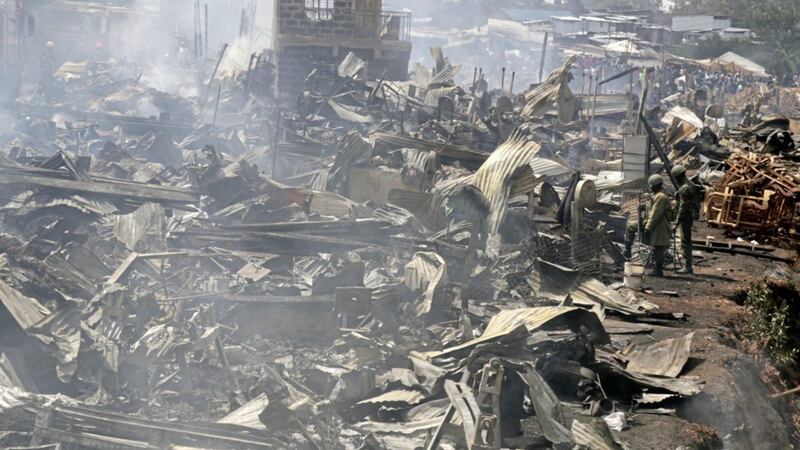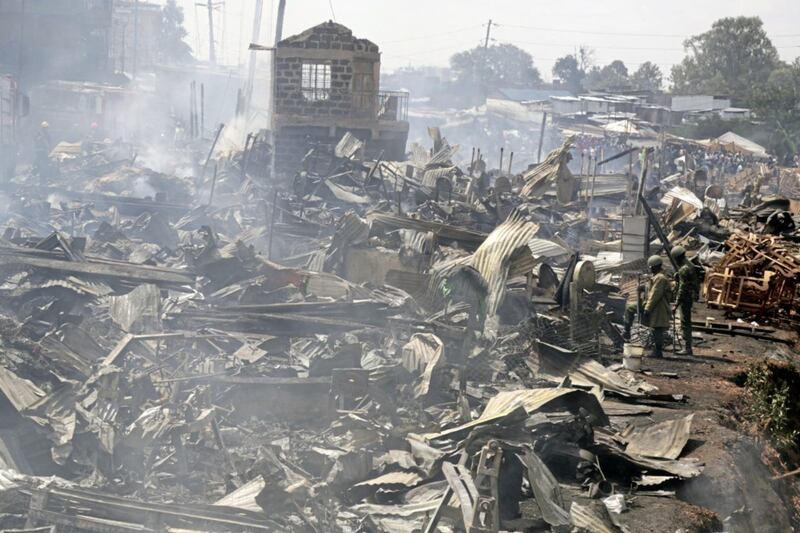A fire has swept through a marketplace in Nairobi, killing 15 people and injuring 70, according to Kenyan media.
Rescue teams are searching for more bodies and survivors in Gikomba market, in the Pumwani area of the capital city.
Nairobi County commissioner Kangethe Thuku said six bodies have been recovered, with efforts continuing to retrieve nine others from a building.
Many Kenyans shop for second-hand clothes from the Gikomba market, which also supplies other vendors with the used clothes from Europe and the US.
The cause of the fire was not immediately announced but "for now we have declared this site a crime scene", Mr Thuku said.
Security forces guarded the smoking scene as workers picked through the blackened rubble.
One market trader, Ruth Kaveke, grasped a wad of burnt currency and said it was the only thing she managed to salvage from her cloth-making shop.
It is the second time fire has destroyed her only source of livelihood in as many years.
She said: "I live in the market because it is convenient and I wanted to be close by; just in case of fire I could salvage my property."
By the time she got her children to safety, it was too late to save anything else, she said.
The fire started around 2.30am local time (12.30am Irish time) and was contained about an hour and a half later, according to the St John Ambulance charity.
Residents said the crowded market has had fires multiple times in recent years, and traders have suffered huge losses.
Officials have said access roads are clogged with traders who block emergency response services, while critics say those services are poor.



